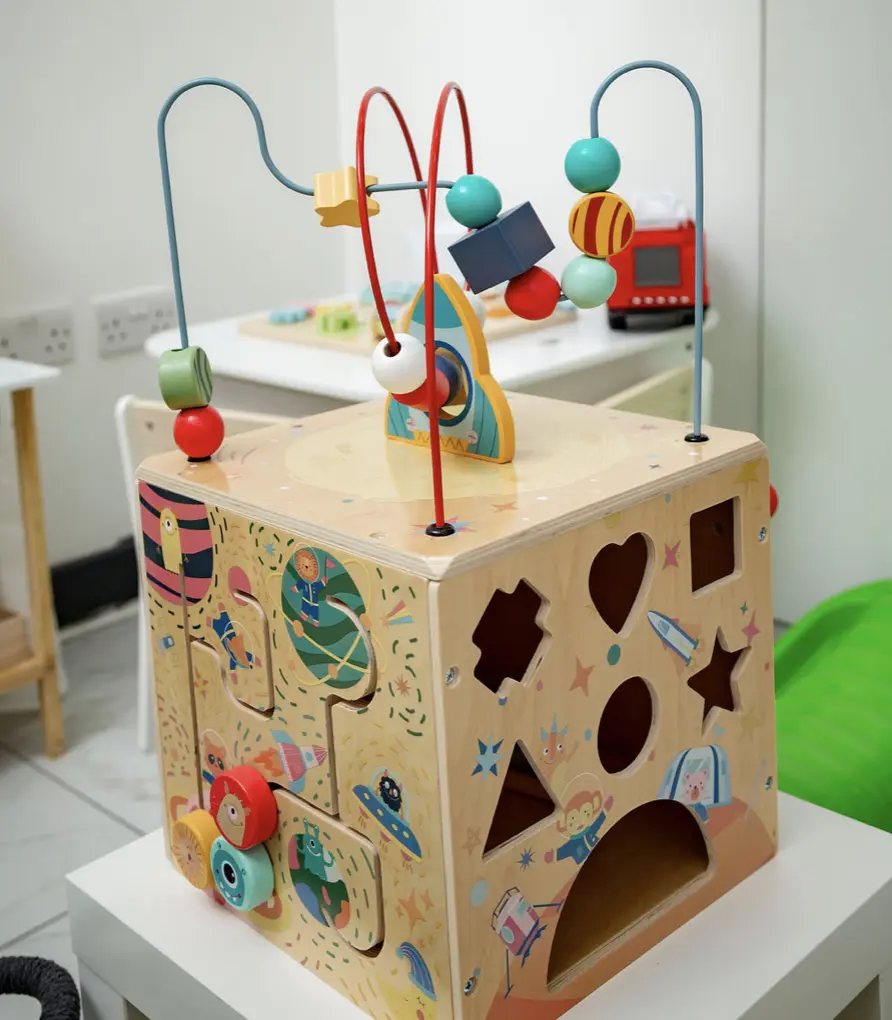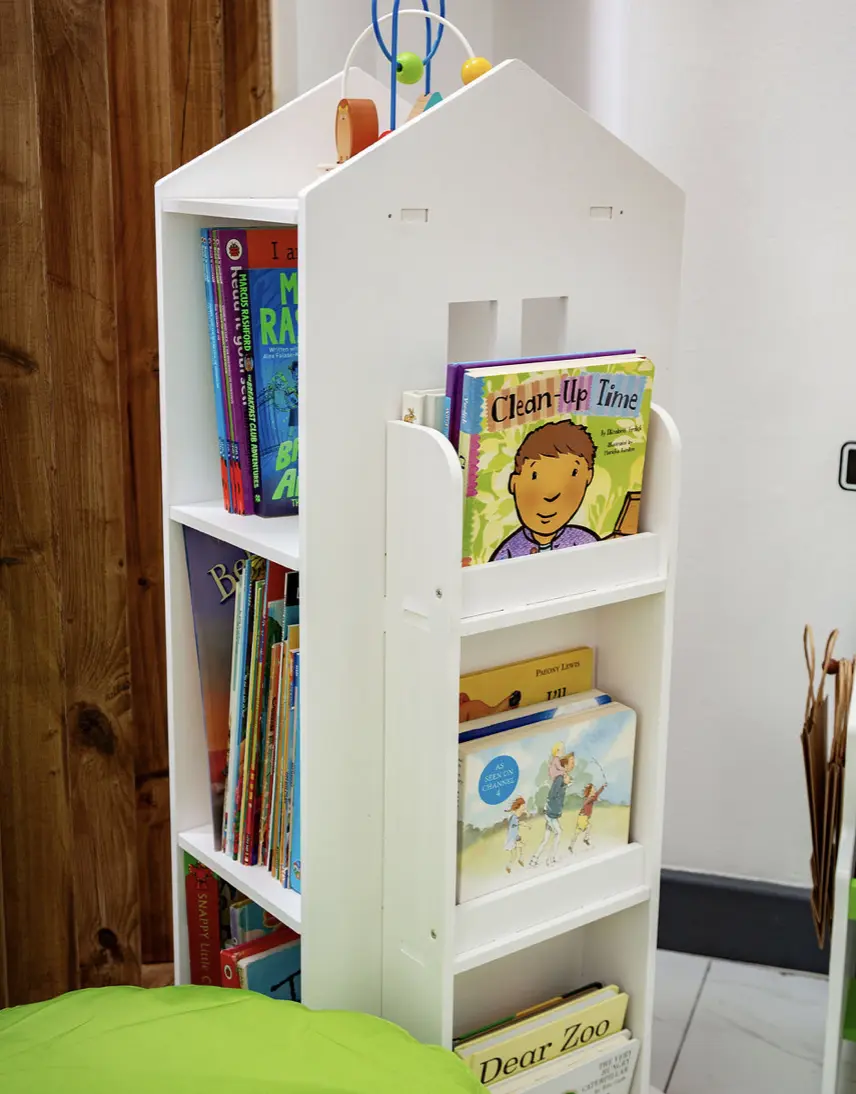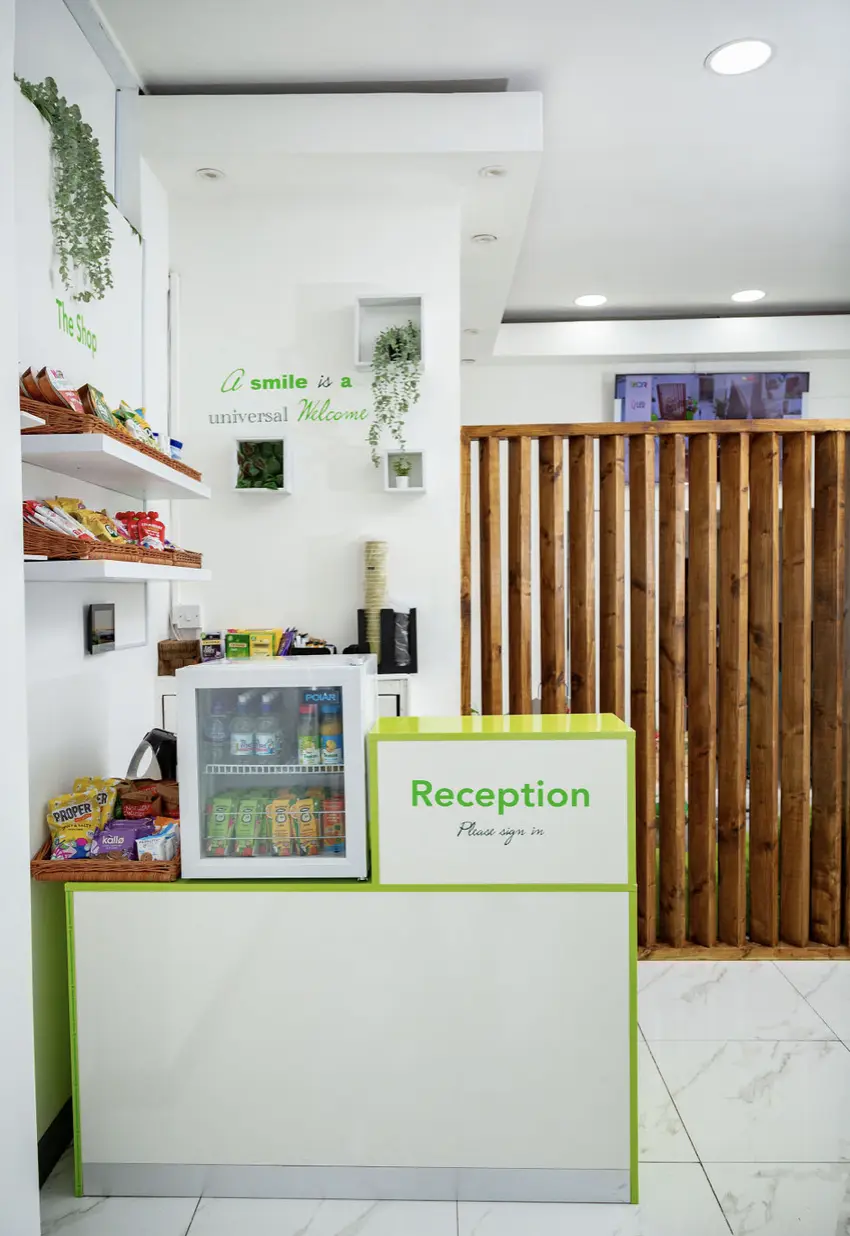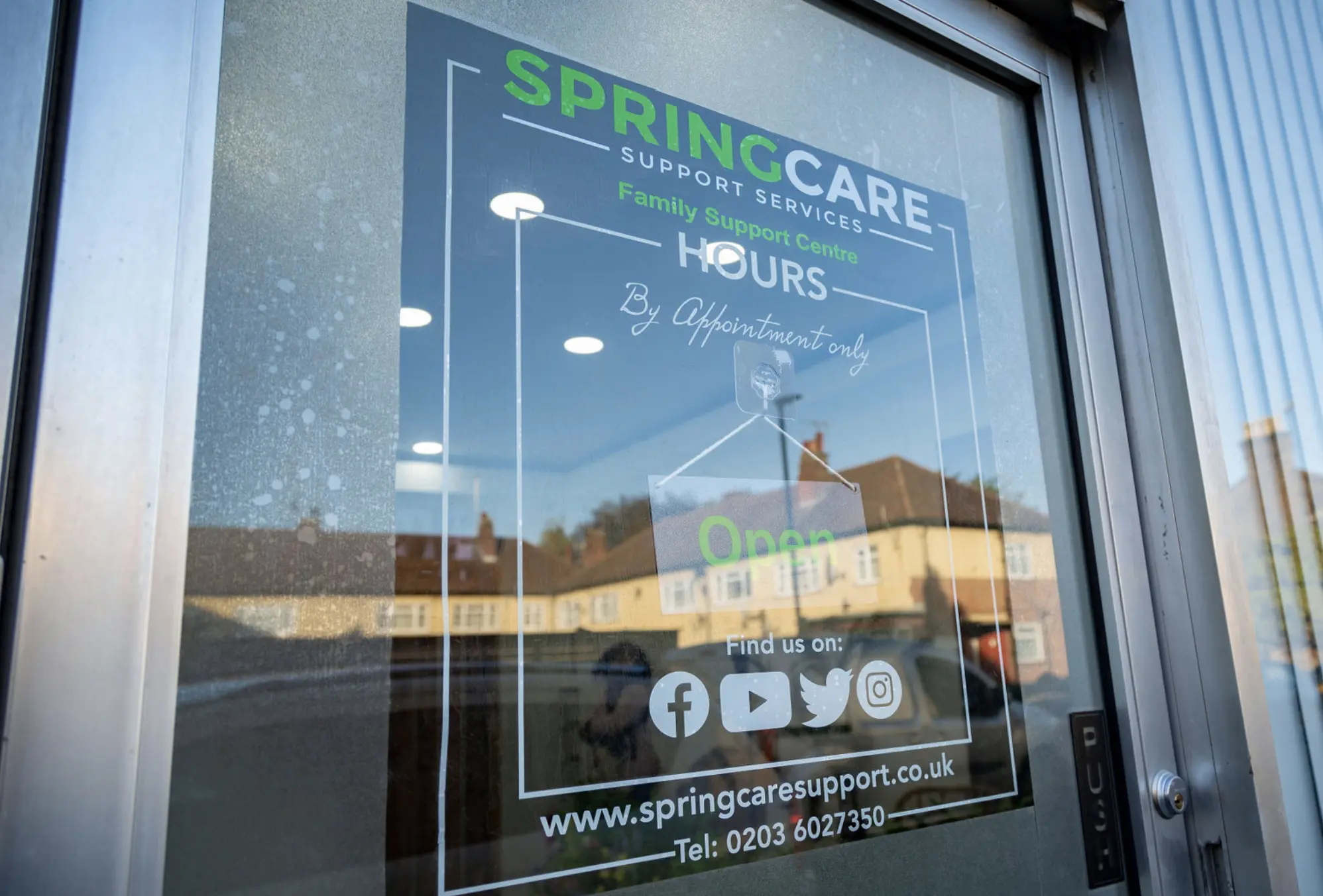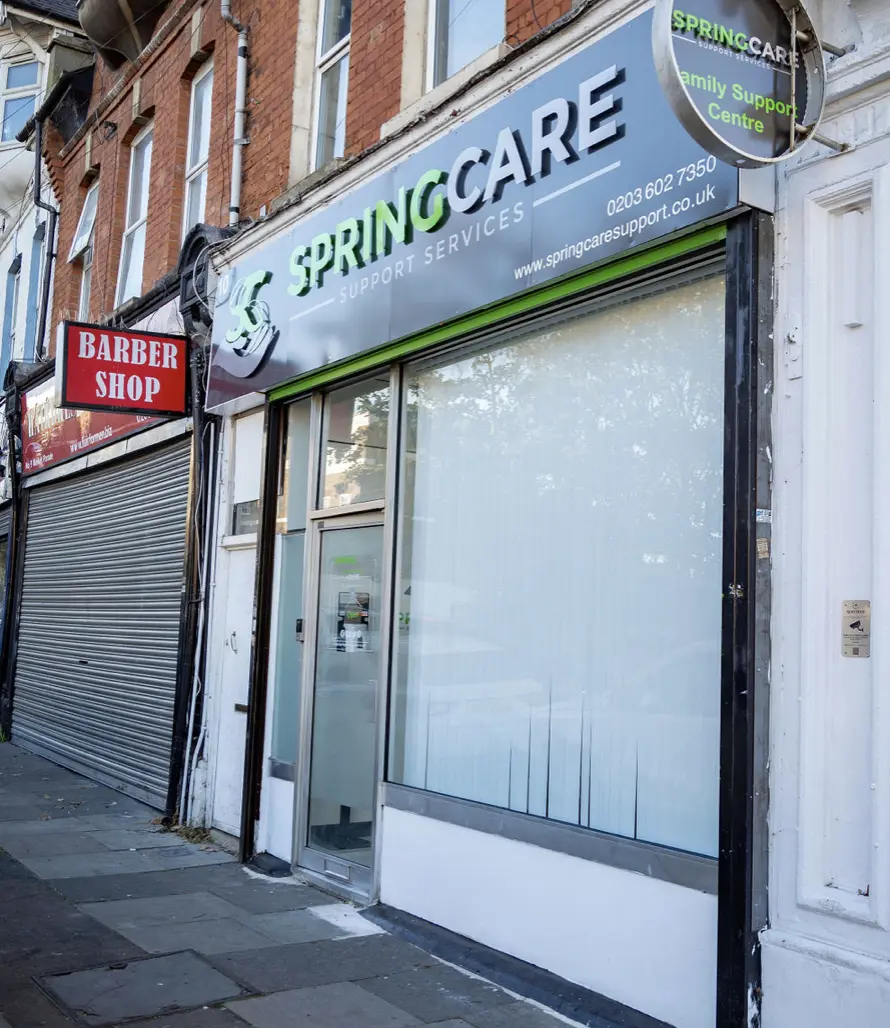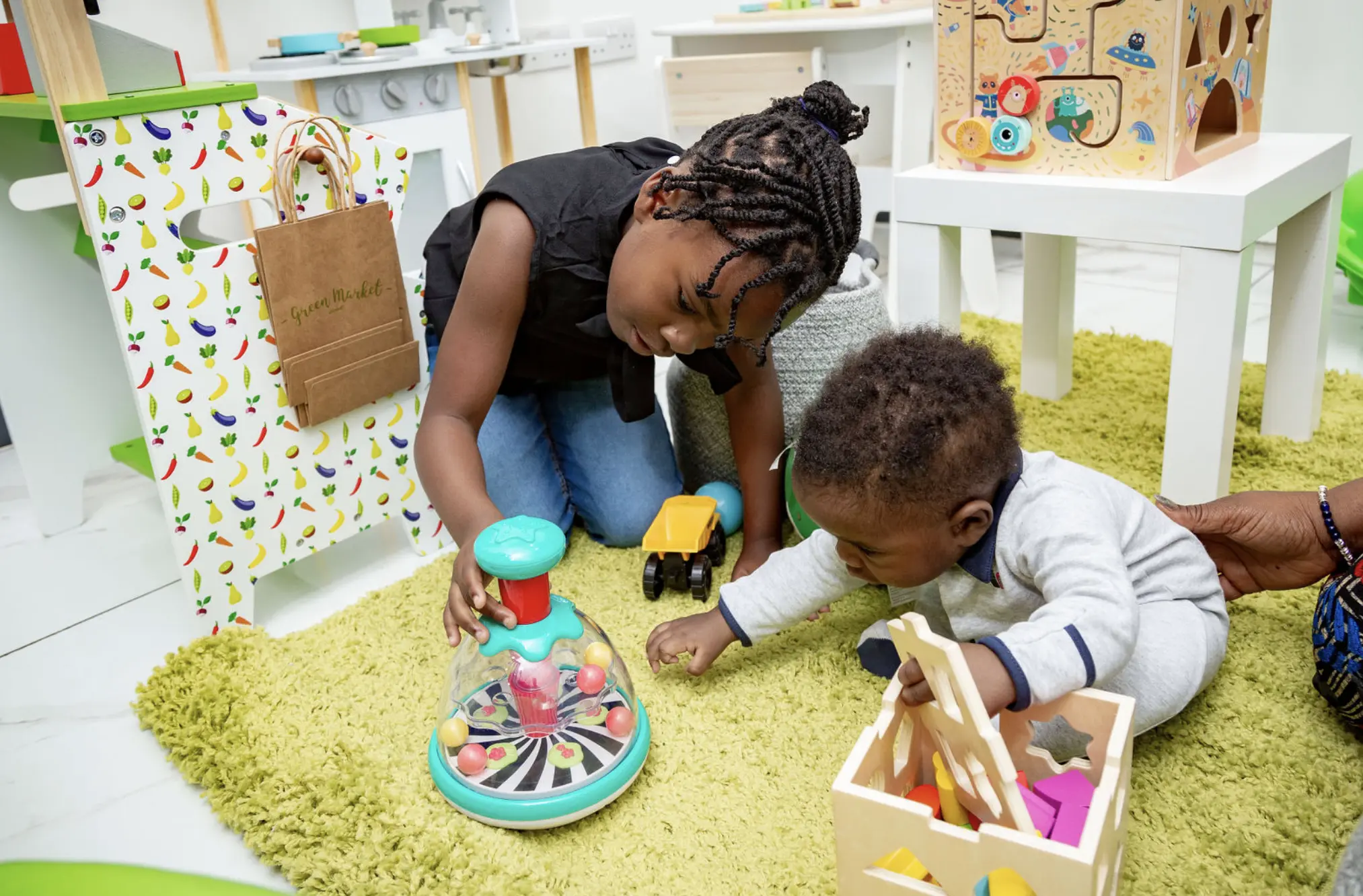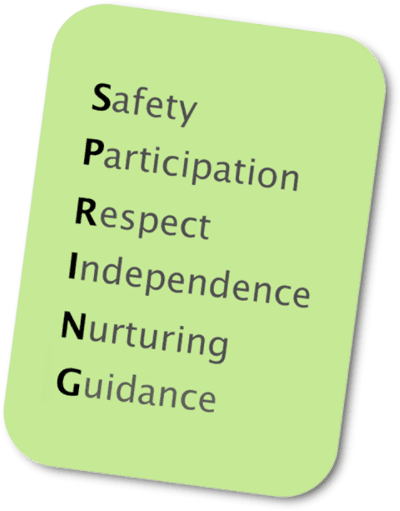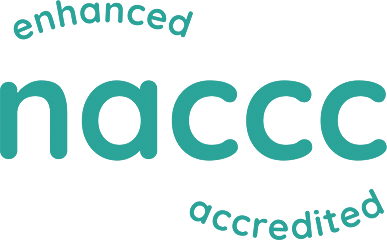
With many community centres closing down we understand the need for a centre that can facilitate families who need supervised contact services, support services, and a parent hub. That is what Springcare’s Family Support Centre is all about, creating more spaces for the community. Supporting children & families, and parents with Autistic children or Learning difficulties.
Our Family Support Centre:
Enhanced Accreditation awarded by NACCC. An accreditation process which ensures members meet national standards.
A Venue Newly refurbished, cosy, family-friendly environment, secured, easily accessible, with health & safety facilities.
- Accessible to the public, a 5-minute walk to the nearest train station (Edmonton station), a 1-minute walk to the nearest bus stop, and street parking.
- Local Amenities in the area. There are a variety of restaurants nearby. We are a 5-minute walk from the local shopping centre.
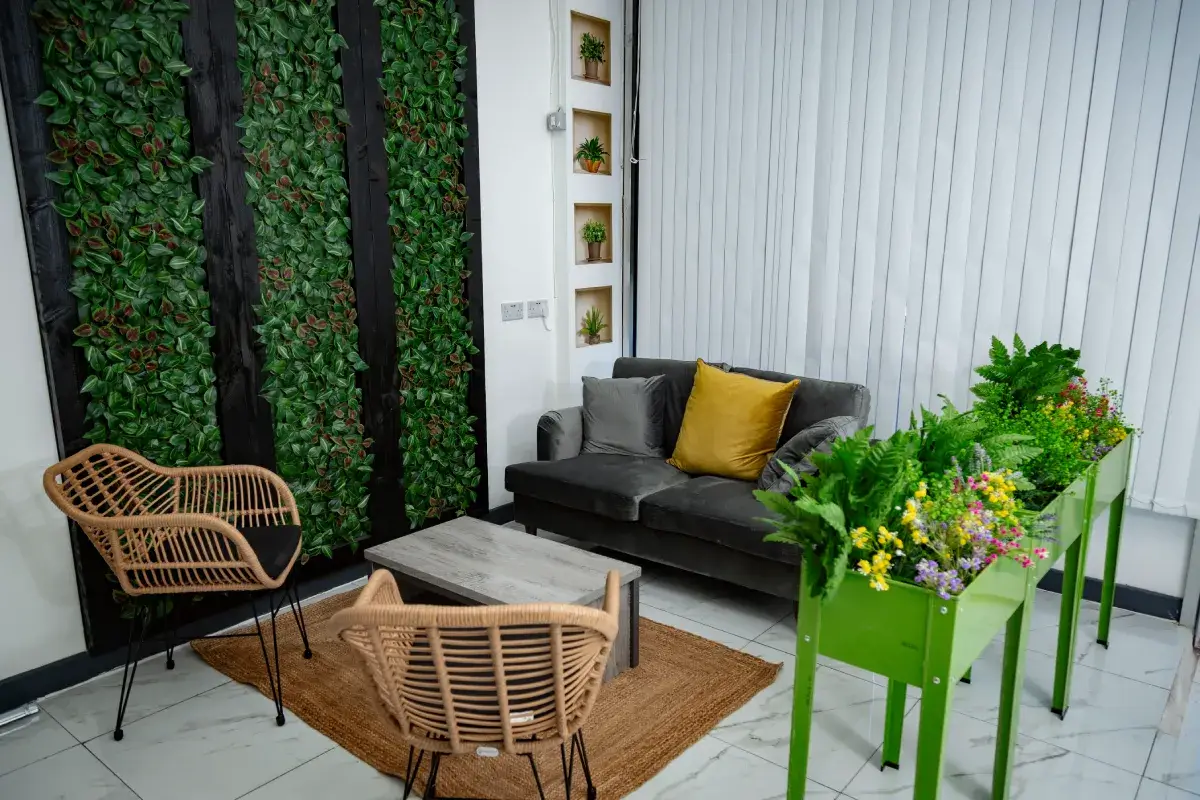
“It’s all about Family Support”
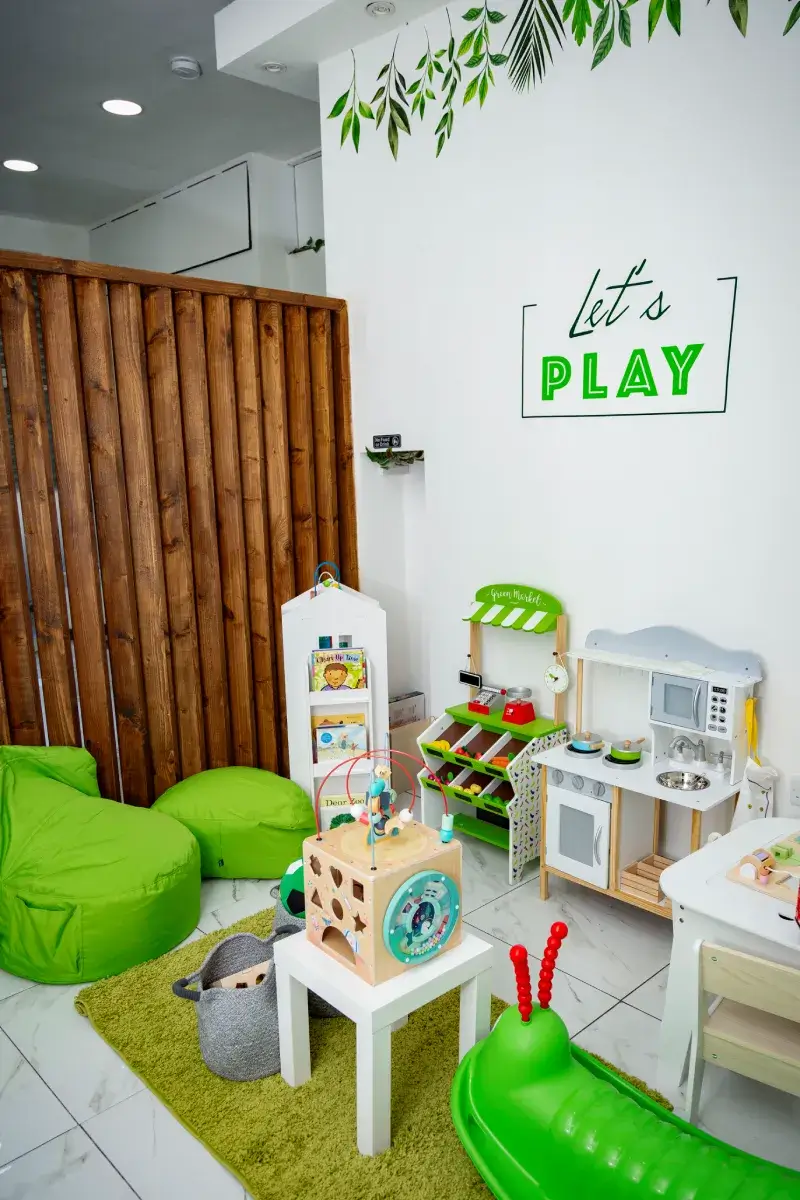
Facilities
- Play area – Carefully selected Toys and games for different age groups and special needs children.
- Books – A vast selection of books that boost social and emotional well-being.
- Relaxation area – Designed for optimal comfort and relaxation.
- Portable dining table with chairs – Outside the play area there is an option of setting up a dining table, to create a homely environment, a high chair is also available.
- Toilet & a portable baby changing facility.
- Kitchen – Modern with access to a microwave, fridge, bottle warmer, Kettle & tea making facilities.
- Mini shop – An option to purchase healthier food/snacks for children and purchase essential baby items.
We Support
- Children who are in contact with their family members, and support with accessing community recreational activities.
- Parents with autistic children/ Learning difficulties.
We provide the following services
Supervised contact is conducted under the watchful eye of trained professionals. Taking place in a specially designed environment where you can connect with your loved ones. This type of contact is typically arranged when there is a perceived higher risk or a significant need for support within a family’s circumstances. It’s a common arrangement for children in care, ensuring they have the chance to maintain important relationships. During these sessions, trained staff will observe interactions and document their findings. They are expected to stay within sight and sound of the children at all times, ensuring a safe environment.
Click here for more information about how we conduct supervised contact at our centre.
A Supervised Contact Assessment is a carefully organised assessment conducted by a qualified professional to determine whether a parent or another individual is fit to have contact with a child, particularly in situations where there are worries about the child’s safety or overall well-being. This assessment is frequently utilized in scenarios involving separated families, care proceedings, or allegations of abuse or neglect. Additionally, it serves to uncover the underlying issues that may have hindered the initiation of contact, led to its breakdown, or rendered it impractical.
Supported contact refers to a type of interaction between a parent and child where they engage regularly, with the presence of a contact worker who offers assistance, guidance, and communication support as necessary.
This arrangement is generally utilized when there are low to moderate risks involved for the child, aiming primarily to foster or restore relationships and enhance parenting abilities.
In contrast to supervised contact, where a supervisor is always present, a supported contact worker may not be in the room for the entire duration, providing support as needed.
This type of contact is typically recommended when the risk to the child is assessed to be lower than in cases requiring supervision.
The main objective is to help rebuild connections between parents and children, especially when communication has faltered or parenting skills require improvement.
Supported contact can occur in various settings, such as a contact center or within the community, based on the preferences of the parents and what is considered safe. While supported contact workers may check in during sessions, they usually do not take extensive notes or document conversations unless specifically asked to do so.
Virtual contact can be supervised or supported and is a way for parents and children to spend time together through video calls, such as Zoom or Skype, while a trained professional observes to ensure the child’s safety.
This method is particularly useful when there are concerns regarding the parent’s ability to create a safe and nurturing environment for the child.
The main goal of virtual contact is to foster a connection between parents and their children while prioritizing the child’s well-being.
During these sessions, a qualified supervisor, joins the call to monitor the interaction, step in if needed to protect the child, and offer guidance to the parent. This approach is often employed in cases involving domestic violence, substance abuse, or neglect, and can also assist in re-establishing contact after a separation or in helping parents develop a healthy relationship with their child.
One of the key advantages of virtual contact is that it enables families to maintain their bond even when in-person visits are not feasible or safe, making it especially beneficial for families separated by long distances. Popular platforms for these virtual meetings include Teams, Facetime, Zoom and Skype.
Escorted supervised contact refers to visits between a child and a parent that are monitored by a contact supervisor, usually taking place in community settings rather than a contact center. This arrangement typically follows a series of successful supervised sessions held in a center. During these outings, which could be at a park, shopping center, or similar venue, the supervisor will be present to ensure everything goes smoothly, and a report will be drafted after the session.
Indirect contact is a form of child interaction where a parent and child communicate without meeting in person, but under the watchful eye of a professional.
This arrangement can include sending letters, gifts, emails, or even video calls, all while a professional monitors the exchanges to ensure they are appropriate and safe. The goal is to create a secure and supervised setting for the non-custodial parent to connect with their child when direct contact is not considered appropriate.
The process of life story and identity support aims to assist children in understanding their history, cultivating their identity, and enhancing their resilience, particularly in cases where they have faced trauma or separation from their biological families. This support may include the creation of a life story book, involvement in creative activities, or attending therapeutic sessions to delve into their experiences and strengthen their self-identity. Maintaining contact, whether through direct or indirect means, is essential for preserving relationships and nurturing a feeling of belonging.
Parents or guardians may be reluctant to meet; however, it is essential to guarantee the safe transfer of the child to the other parent or guardian. This service provides a secure method for the child to transition from one parent to another. It can take place in the center or in the community.
Certain organizations may have contact supervisors; however, their venues are often not conveniently located near the child’s residence or are fully booked, resulting in a lack of available space. This is where our center can assist, as we are prepared to host contact sessions.
There is a scarcity of private areas specifically created for parents and children to foster bonding and interaction. Our play sessions are tailored to facilitate child play, enhance parent engagement, and offer a diverse selection of toys to keep young ones entertained.
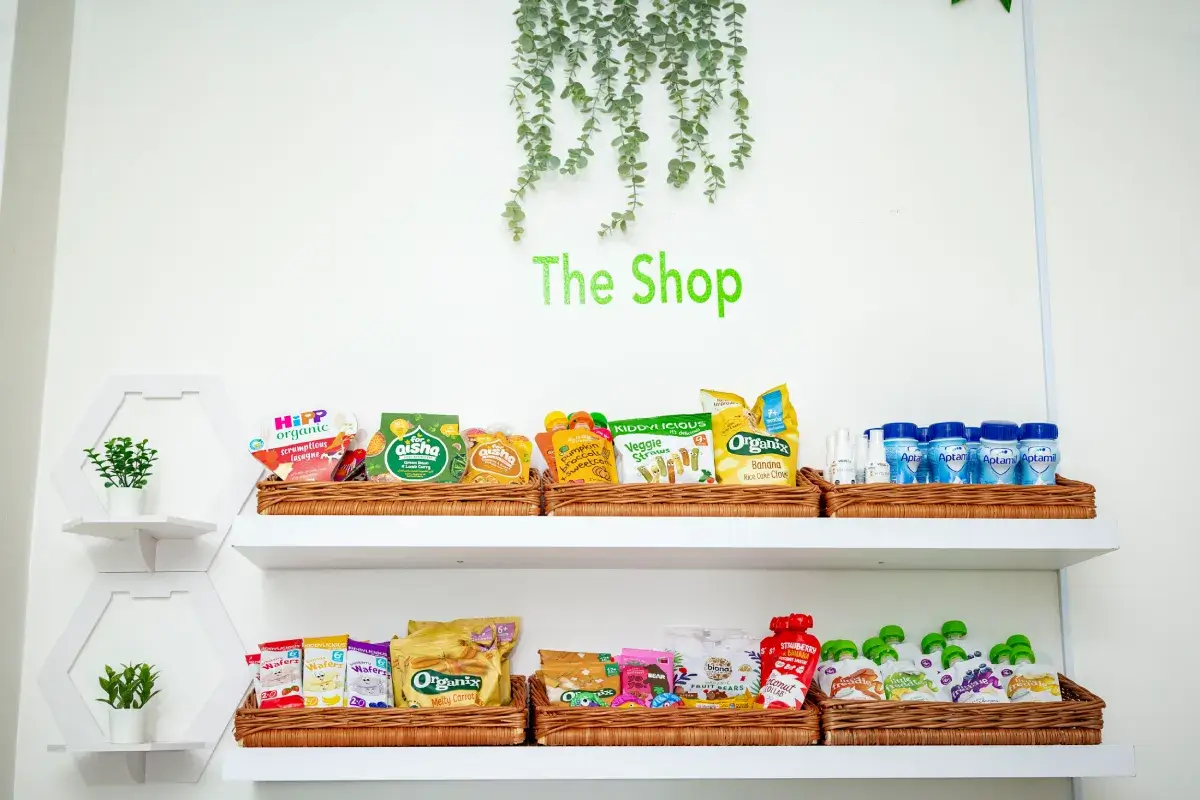
| Supervised Contact (Inc report) | From £82.00 per hour |
| Escorted/ Community Supervised Contact (Inc report) | From £72.00 per hour |
| Supported Contact | From £50.00 per hour |
| Virtual / Indirect Contact | From £40 per hour |
| Handover | From £30 per session |
Prices start from the prices stated above and vary depending on the specific requirement requested for the service.
Please email us for more information.
Interested in services?
If you are interested in any of the above services, please call to make an enquiry or email us and we will be happy to assist you.
Where to find us
Springcare Support Services
Family Support Centre
10 Market Parade
London
N9 9HF

